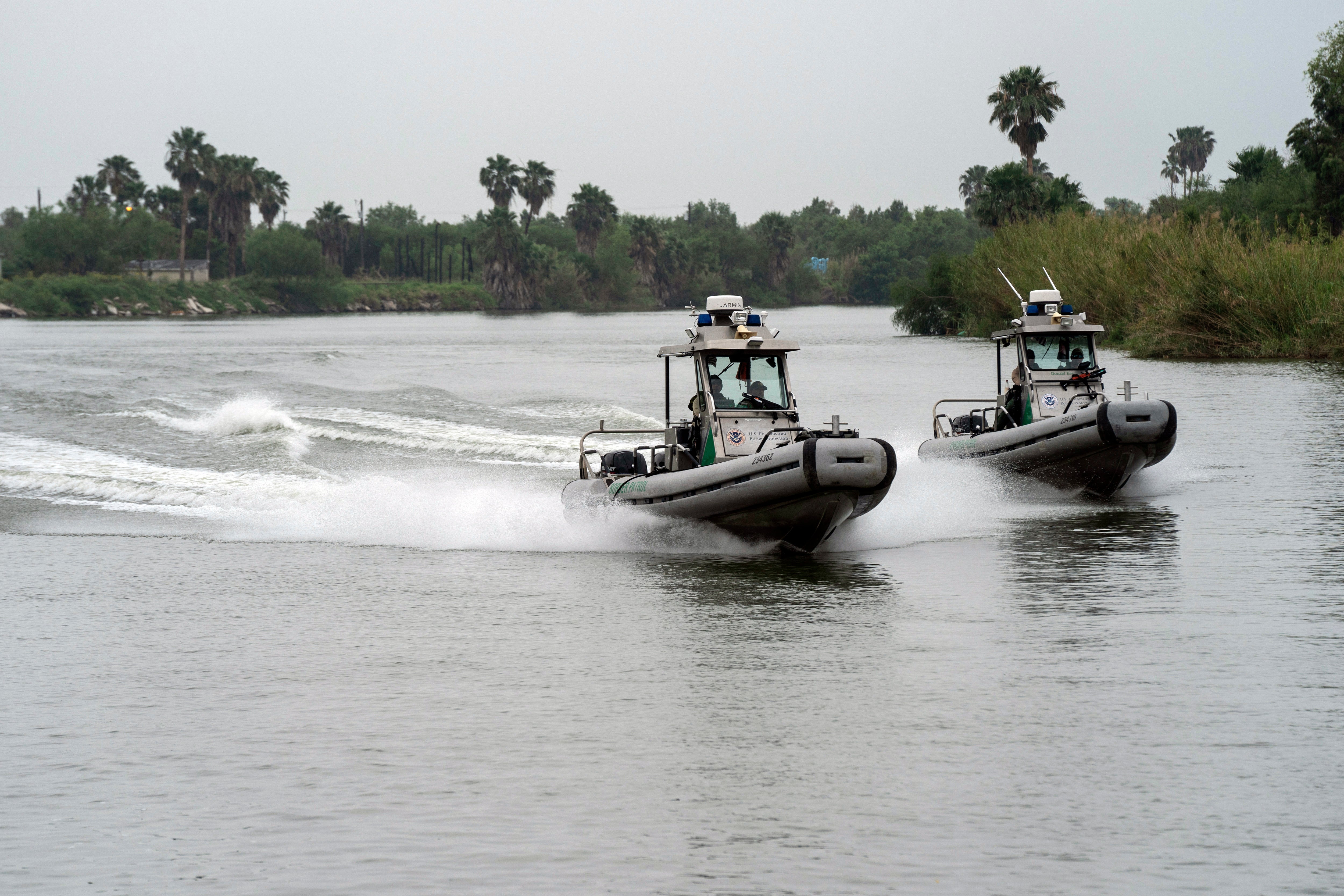Mayorkas: Border is 'very challenging' as asylum limits end
U.S. Homeland Security Secretary Alejandro Mayorkas says authorities face “extremely challenging” circumstances along the border with Mexico days before pandemic-related asylum restrictions end

Your support helps us to tell the story
From reproductive rights to climate change to Big Tech, The Independent is on the ground when the story is developing. Whether it's investigating the financials of Elon Musk's pro-Trump PAC or producing our latest documentary, 'The A Word', which shines a light on the American women fighting for reproductive rights, we know how important it is to parse out the facts from the messaging.
At such a critical moment in US history, we need reporters on the ground. Your donation allows us to keep sending journalists to speak to both sides of the story.
The Independent is trusted by Americans across the entire political spectrum. And unlike many other quality news outlets, we choose not to lock Americans out of our reporting and analysis with paywalls. We believe quality journalism should be available to everyone, paid for by those who can afford it.
Your support makes all the difference.U.S. Homeland Security Secretary Alejandro Mayorkas said Friday that authorities faced “extremely challenging” circumstances along the border with Mexico days before pandemic-related asylum restrictions end.
A surge of Venezuelan migrants through South Texas, particularly in and around Brownsville, has occurred over the last two weeks for reasons that Mayorkas said were unclear.
Mayorkas noted that Mexico agreed this week to continue taking back Venezuelans who enter the U.S. illegally after asylum restrictions end Thursday, along with Cubans, Haitians and Nicaraguans. Migrants have been expelled from the U.S. more than 2.8 million times since March 2020 under what is known as Title 42 authority.
The secretary reaffirmed plans to finalize a new policy by Thursday that will make it extremely difficult for migrants to seek asylum if they pass through another country, like Mexico, on their way to the U.S. border.
“The situation at the border is a very serious one, a very challenging one and a very difficult one,” Mayorkas said.
Illegal crossings tumbled after President Joe Biden announced asylum restrictions in January, but they have risen since mid-April. Brandon Judd, president of the National Border Patrol Council, said this week they have been hovering around 7,200 daily, up from about 5,200 in March.
Border Patrol Chief Raul Ortiz said 1,500 active-duty troops will be dispatched to El Paso, Texas, adding to 2,500 National Guard troops already positioned across the border. Ortiz said El Paso was chosen because it has been a busy corridor for illegal crossings over the last six months. The troop deployment was announced this week but not the location.